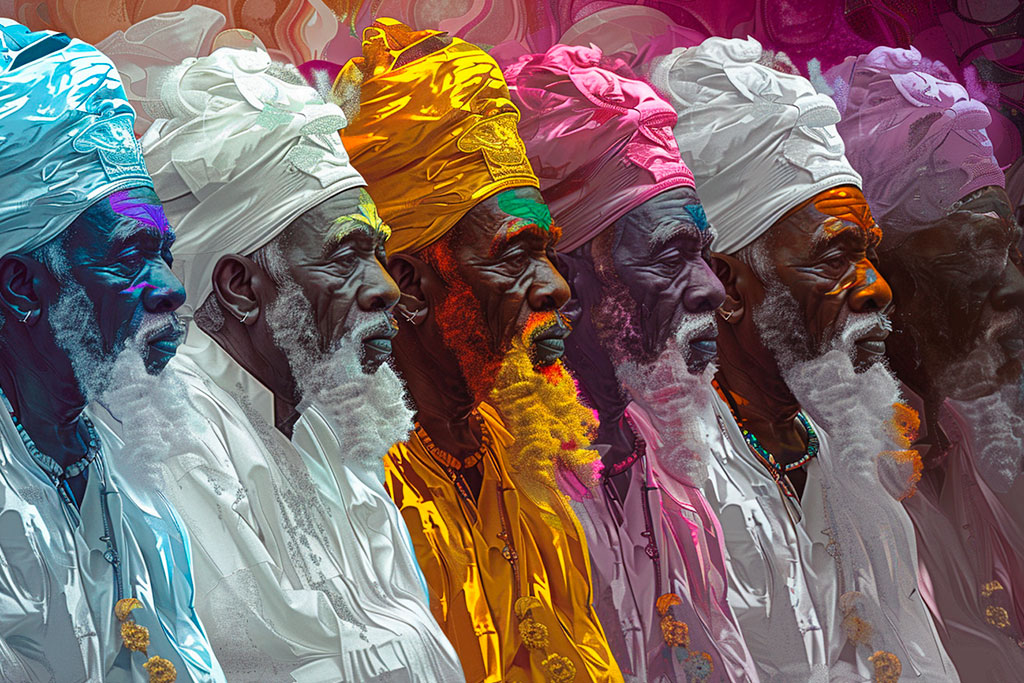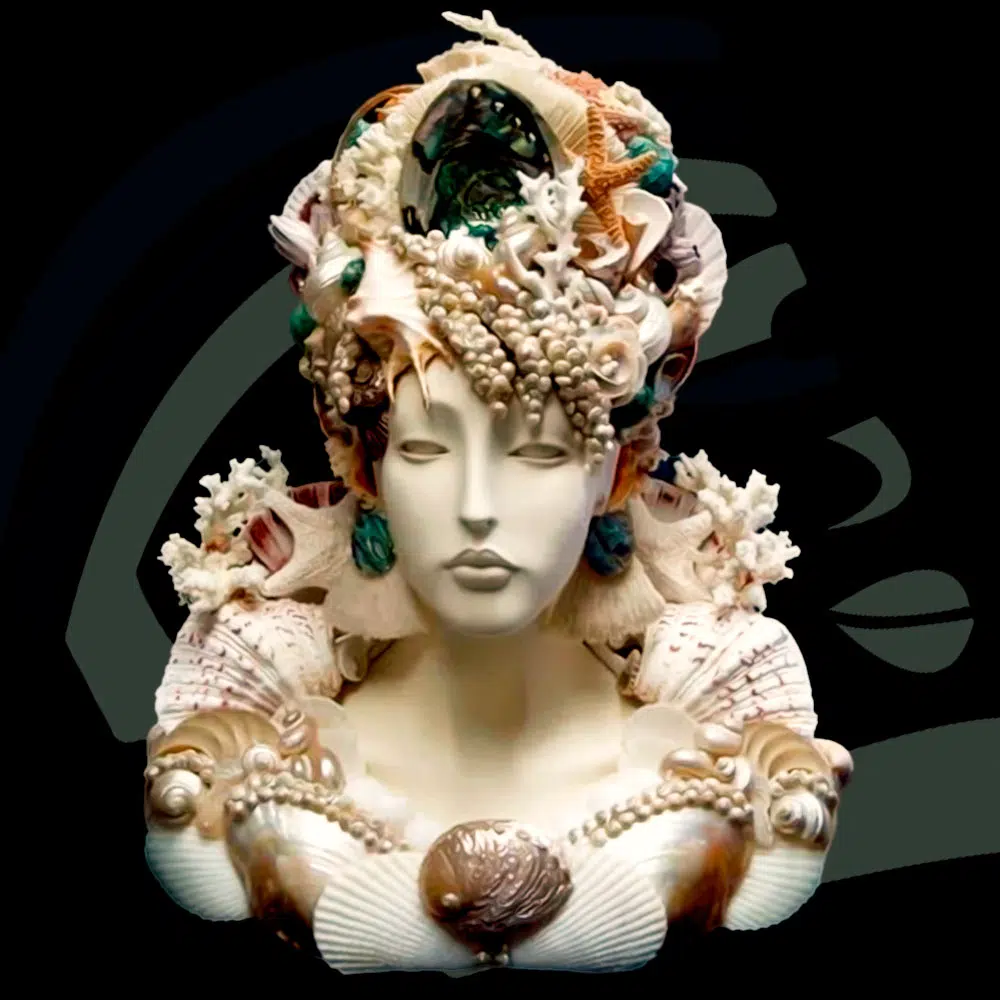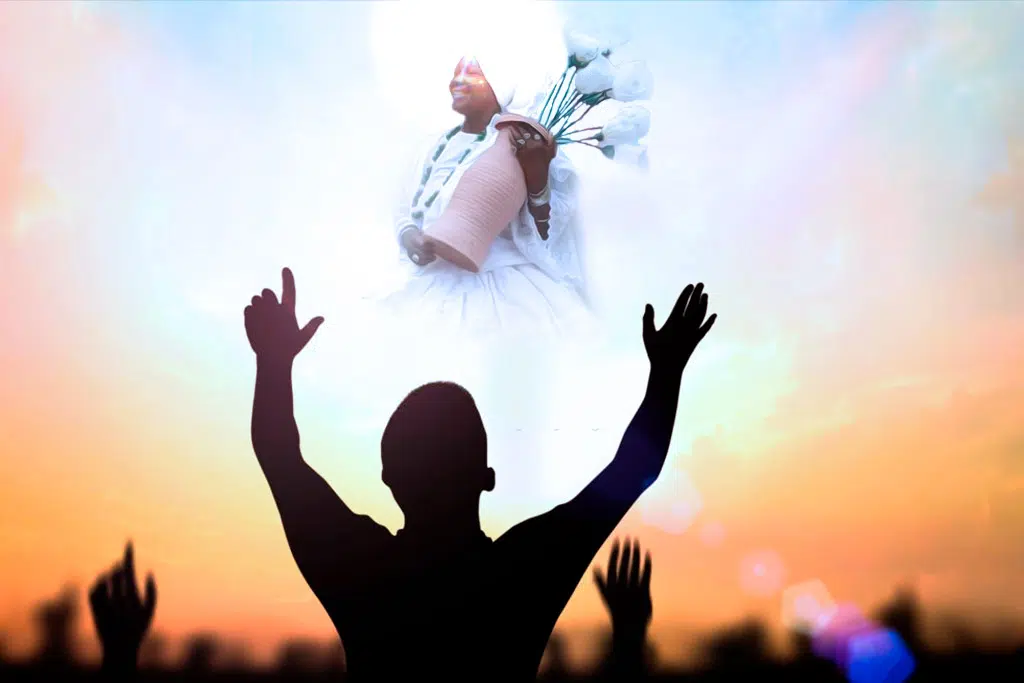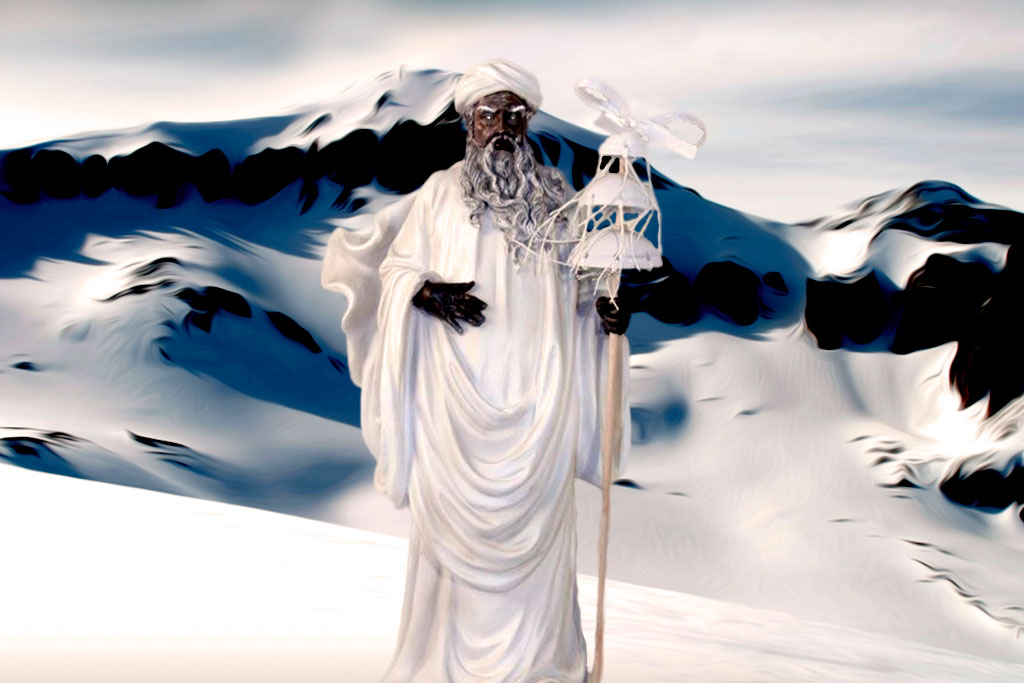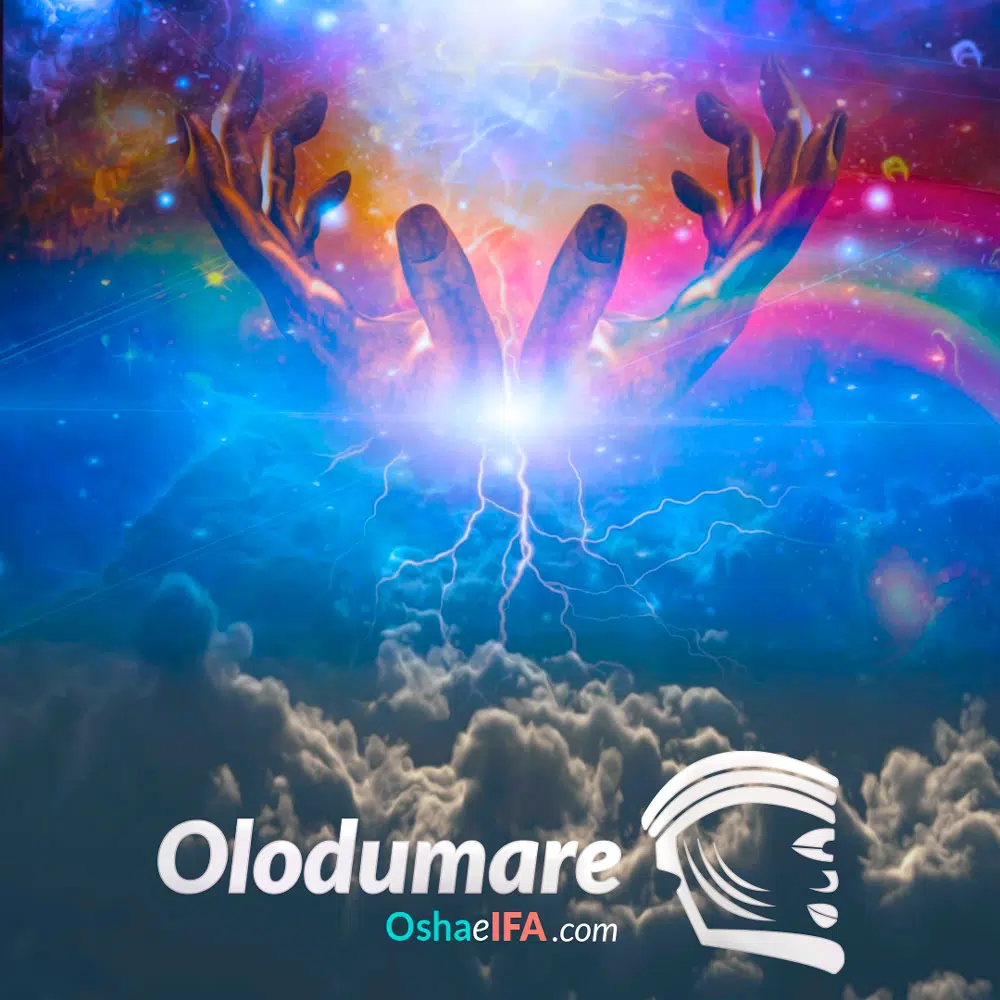Obatalá: The Supreme Orisha of Creation and Purity
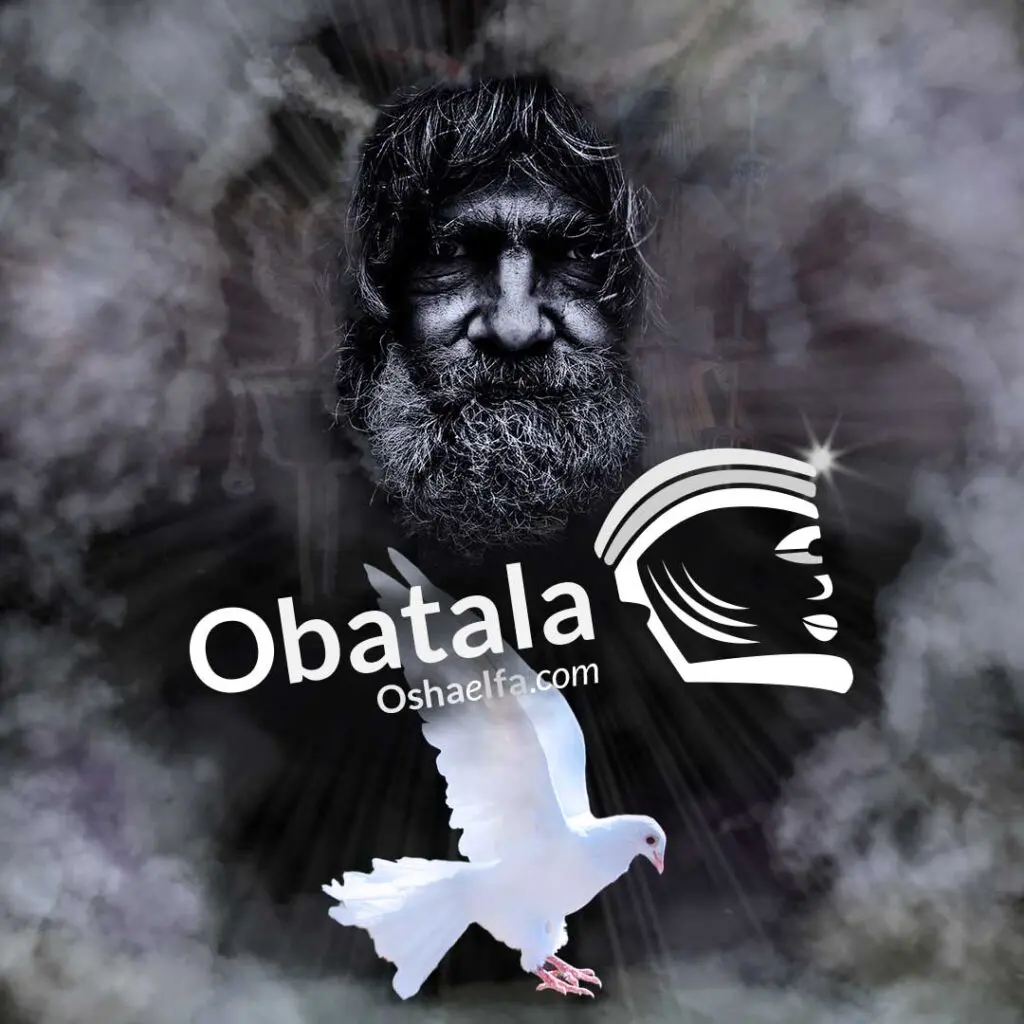
Obatalá was an ancient deified Yoruba king. Son of Olofi and Olodumare, he is considered an Orisha of great importance and position. His spirituality represents the purest nature. It is said that he was entrusted with the mission of creating human beings, but he drank a lot of palm wine and fell asleep, and the task was completed by the Orisha Odudúwá.
Key takeaways:
- Obatalá as Divine Origin: Obatalá is a deity of creation, originally in charge of the formation of human beings, highlighting his fundamental role within Yoruba spirituality and Santería.
- Figure of Purity and Justice: His representation as the "King of Purity" and his connection with justice demonstrate his importance as a moral and spiritual pillar for his followers.
- Protective Influence: Obatalá offers protection to those in need, especially people with abnormal physical features and infertile women, reflecting his compassion and care.
- Respect and Devotion in your Worship: Devotional practices towards Obatalá, including specific offerings and adherence to taboos, reflect the deep respect and veneration that his faithful have for him.
- Symbolism in Clothing and Cultural Expressions: Through its colors, clothing and sacred dance, Obatalá communicates its essence and messages, reinforcing its connection with devotees.
- Religious syncretism: The identification of Obatalá with Catholic figures, such as the Virgen de las Mercedes, illustrates its cross-cultural relevance and its ability to unite different spiritual traditions.
- Legacy of Wisdom and Guidance: Obatalá's teachings highlight the importance of honesty, loyalty and following destiny, acting as a moral guide for humanity.
- Transcendental Impact: Orisa Nla's influence extends beyond the Yoruba religion, offering hope, protection and guidance across generations and cultures.
Who is Obatalá?
Obatalá, a central figure in the Yoruba religion and extended to Santería, is venerated as the "King of Purity", "Lord of the White Clothes", and "Lord of Visions". This Orisha, also known as "Orisa Nla" (the great Orisa) and "Obaba Orugbo" (the ancient Father-King or the Elder Father), symbolizes divine authority and spiritual purity.. His name, which breaks down into Oba (King), ti (of or like), and ala (white or border), reveals his role as the ruler of whiteness and guardian of Yoruba spiritual and territorial borders. .

"Obatalá represents the concept of knowledge, the use of our brain to think, intellect, ideas and the process of knowing and understanding."
(Diane Elizabeth Caudillo. Prayers to the Orishas a look at Santeria. 2007, p. 11).
Origins and Meaning
Obatalá is the architect of humanity, in charge of molding the forms of all creatures in the womb, highlighting his importance as a creative divinity. It is said that his arrival on earth was through the Oddun Oshe Fun (isalaye), establishing him as a pillar of purity, justice, and health within Santería, where he is considered the owner of all heads and the judge supreme of religion.
Influence and Authority
As an Orisha who cannot be influenced by Eshu, Obatalá holds a superior authority among the divinities. He was created by Oloddumare to counteract the negative influences of Eshu on the other Orishas., highlighting his role as protector and spiritual guide. His intervention is crucial in favoring the conception of children by infertile women and in protecting people with abnormal physical features, who are considered sacred under his care.
The Cult of Obatalá
Obatalá's followers, by referring to him as "Baba" (Father), recognize his elevated status and spiritual presence, symbolized by the gray hair in his hair. The teachings and worship of Obatalá emphasize purity, respect, and gratitude toward this generous, yet authoritarian deity, whose influence extends throughout Yoruba and Santería culture and spirituality.
Other Names of the Orisha Obatalá in Various Cultures and Religions
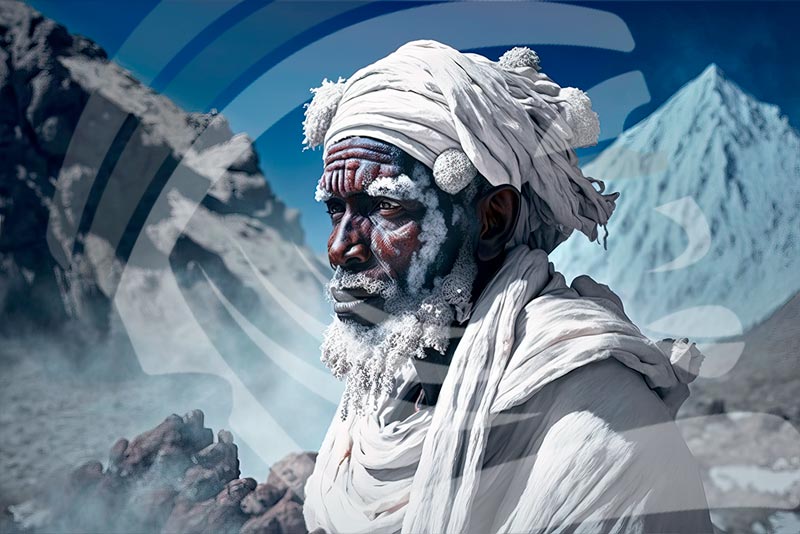
Obatalá, a central figure in the Yoruba religion and widespread through Santería and other African American practices, is known and venerated under various names and titles that reflect his diversity and the richness of his cult. Below are some of the names and epithets by which this Orisha is known in different cultures and religions, highlighting its universality and the depth of its spiritual meaning:
- Orisa Nla: In the Yoruba religion, Obatalá is frequently called Orisa Nla, which means "Great Orisha", emphasizing his status as a creator and his importance within the Yoruba pantheon.
- Baba Arugbo: This title, which translates as "Elder Father," reflects Obatalá's wisdom, knowledge, and paternal authority, underscoring his role as spiritual guide and protector.
- Oluorogbo: In some traditions, Obatalá is known as Oluorogbo, highlighting his connection to purity and his role in protecting against evil and injustice.
- Oba T'Ala: This name, which means "King of Purity" in Yoruba, emphasizes the pure essence of Obatalá and his dominion over all pure and clear aspects of existence.
- Oxalá: In Brazil, within Candomblé and Umbanda, Obatalá is syncretized and venerated as Oxalá, representing creation, peace and purity, and is considered the father of all orixás and humanity.
- Obanla: This epithet, which means "Great King", highlights the majesty and preeminence of Obatalá as a spiritual leader and creative force.
- oshagriñán: This name underlines the warrior and protective aspect of Obatalá, recalling his willingness to fight against injustice and protect his followers.
- Alabalashe: It means "He who possesses the authority to create", emphasizing the creative power of Obatalá and his role as architect of humanity.
- Earth trembles: In Palo Mayombe, a practice of Congo origin in Cuba, Obatalá is associated with Tremble Earth, a powerful entity that represents the stability, firmness and balance of the earth, thus reflecting the authority and serenity of Obatalá from a perspective different.
Each of these names and titles reflects different facets of Obatalá, from his wisdom and compassion to his creative power and divine authority. Through these various epithets, devotees can connect with Obbatalá in a deep and personal way, recognizing his universal importance in Afro-descendant spirituality.
Characteristics of Obatalá: The Essence of Purity
Obatalá is distinguished as the Yoruba deity embodying the highest purity, symbolizing the supreme moral conception. This Orisha is the pillar of universal ethical principles, encompassing justice, balance, and equity, and extends to cultural and artistic values, reflecting his influence on beauty, artistic culture, and refinement.
Attributes and Symbolism
Symbols and Sacred Tools
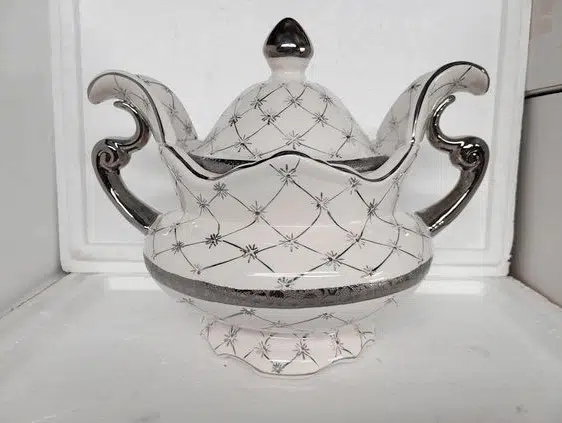
The Obatalá Tureen, his sacred receptacle, shines white, adorned with a silver crown and parrot feathers, symbolizing his heavenly authority. This Orisha holds objects of power such as a sun and a moon, handles, a snake representing transformation, and a silver hand that dominates a scepter, all elements that consolidate his divine sovereignty.
Colors and Clothing
White dominates as the essential color of Obatalá, manifesting itself in his necklace and bracelet (ilde), and although he is primarily associated with this color, certain representations show him in warrior roles, adorned with red bands or purple and green tones depending on the path. specific that it embodies, such as Obamoro or Alaguema.
Cultural Expressions
Sacred Dance
The Obatalá dance, an expression of veneration and spiritual connection, varies from serene movements that imitate the wisdom of an elder to energetic dances of the younger aspects, such as Obatala Ayaguna, where actions of battle and protection are simulated.
Festivities and Numbers
The celebration of Obatalá takes place on September 24, a day that encapsulates the syncretism and devotion towards this Orisha. The number eight and its multiples serve as sacred figures, marking rituals and devotional practices.
Sacred Herbs (Ewe) of Obatalá
Obatalá is associated with a wide range of sacred herbs, each selected for its spiritual and healing properties. Among them, the white pigweed, atiponlá, and the dormidera stand out for their importance in rituals and offerings, underscoring Orishanla's deep connection with the natural kingdom and its role as a healer and protector.
You Might Also: All about the Orisha Shango
Offerings and Adimuses for Obatalá

In Santería, honoring Obatalá involves the preparation and offering of specific adimuses (offerings) that resonate with his pure essence. These include:
- White and Pure Foods: Yam in various preparations, milk, cocoa butter, husk, cotton, and honey stand out among the favorite offerings.
- White Fruits and Vegetables: Soursop, sugar apple, pomegranate, sapodilla, and any white fruit or vegetable are especially appreciated by Obatalá.
- Water and Elements of Purity: Fresh water or coconut water, accompanied by candles and white flowers, symbolize cleanliness and purity.
Gastronomy in Honor of Obatalá
Devotees cook a variety of dishes without salt to please Obatalá, reflecting his preference for what is pure and natural:
- Main courses: They include white rice in all its variants, meringue towers, milk custard, and soursop champola.
- Animal Sacrifices: White animals are offered, such as goats, doves, roosters, chickens, and guineas, symbolizing innocence and purity.
Taboos and Prohibitions
Devotion to Obatalá also involves adhering to certain restrictions and avoiding:
- Prohibited Foods and Substances: Palm wine, corn beer, reddish palm oil, pepper, salt, and melon, along with red meat and any product that contradicts purity.
- Color and Material Restrictions: Black fabrics, rancid water, and certain animals such as dogs and pigs are prohibited in their cult.
- Special Considerations: During the menstrual period, women must refrain from manipulating Obatalá's attributes, and masks must not adorn his altar, maintaining serenity and respect for his sanctity.
Patakie: The Curse of Obatalá on Palo Mayombe
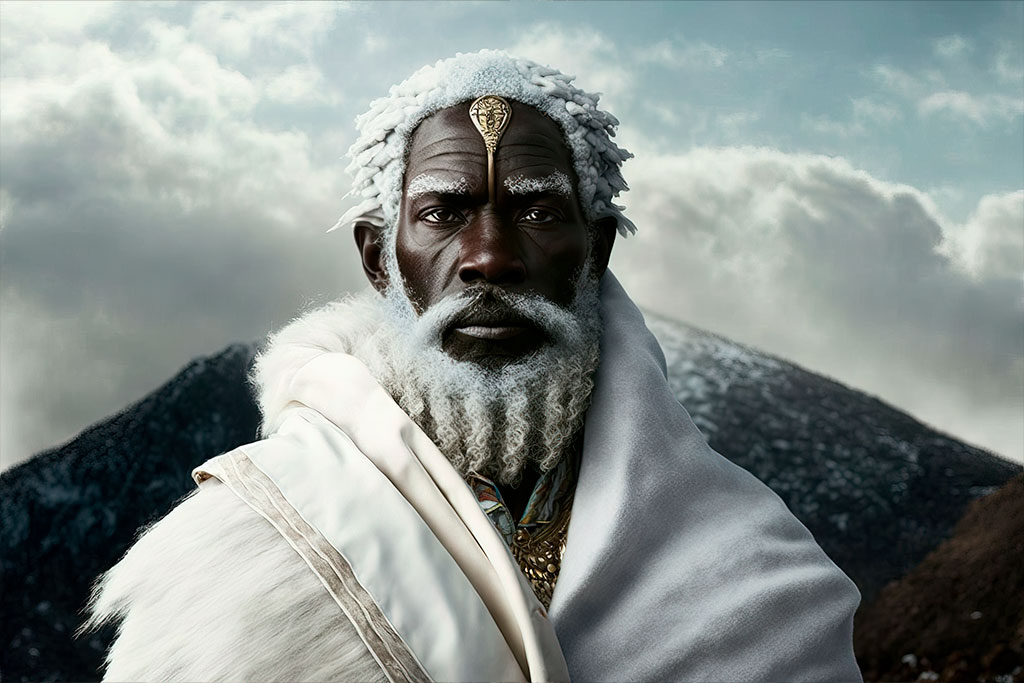
In a significant episode in its history, Obatalá, moved by the tensions and conflicts generated by the wars and witchcraft practiced by Ogun and Shango with the garments of the Congos, decides to intervene. These dark practices were carried out in Conga land, adjacent to Yoruba land, disturbing the peace and harmony of the region.
Obatalá's Intervention
The Yoruba, deeply affected by the deadly consequences of these actions, turned to Obatalá in search of a solution. Knowing the extent of the problem, Obatalá, with the help of Baba and Osain, curses Ogun and the practice of Palo Mayombe, in an attempt to restore balance and protect the people from him.
Despite the curse imposed, the deaths continued, leading to the intervention of Odi Bara. This, together with Osain, acts to stop Ogun and the practitioners of witchcraft, offering Orishanla the iwereyeye to free him from the curse he had pronounced, thus restoring his ability to bless and protect his followers.
Obatalá and his Syncretism in the Catholic Religion
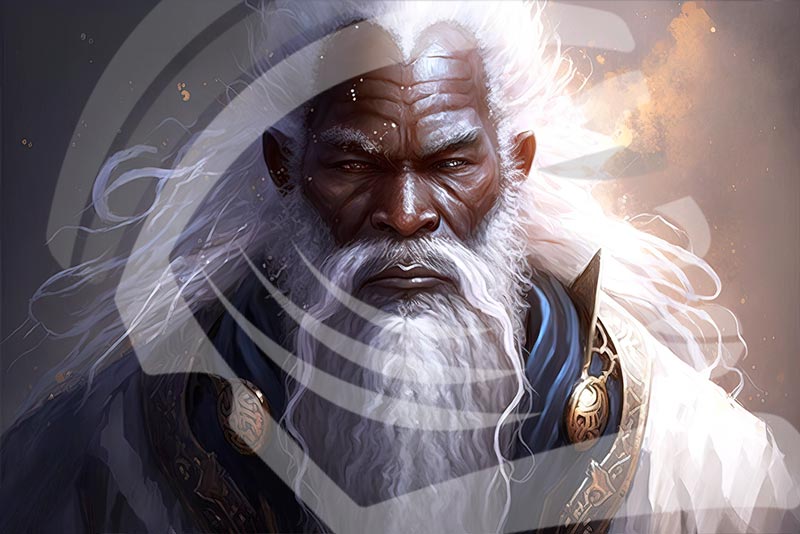
Religious syncretism, a phenomenon where elements of different spiritual traditions are merged and reinterpreted, presents Obatalá in a unique light within the Catholic religion. This Orisha is syncretized not only with the crucified Jesus and Saint Manuel, but, more prominently, with Our Lady of the Virgin of Mercy, also known as the Virgin of Mercy or Virgin of Mercy.
The Fusion of the Masculine and the Feminine
It is fascinating how Obatalá, a primarily male deity, is linked to a female figure as central as the Virgin of Mercedes. This link can be explored through shared iconography: both are presented in immaculate white, from the Virgin's Mercedarian habit to Orishanla's asho funfun, which symbolizes her mastery over purity and divine protection.
The Mantle of Protection
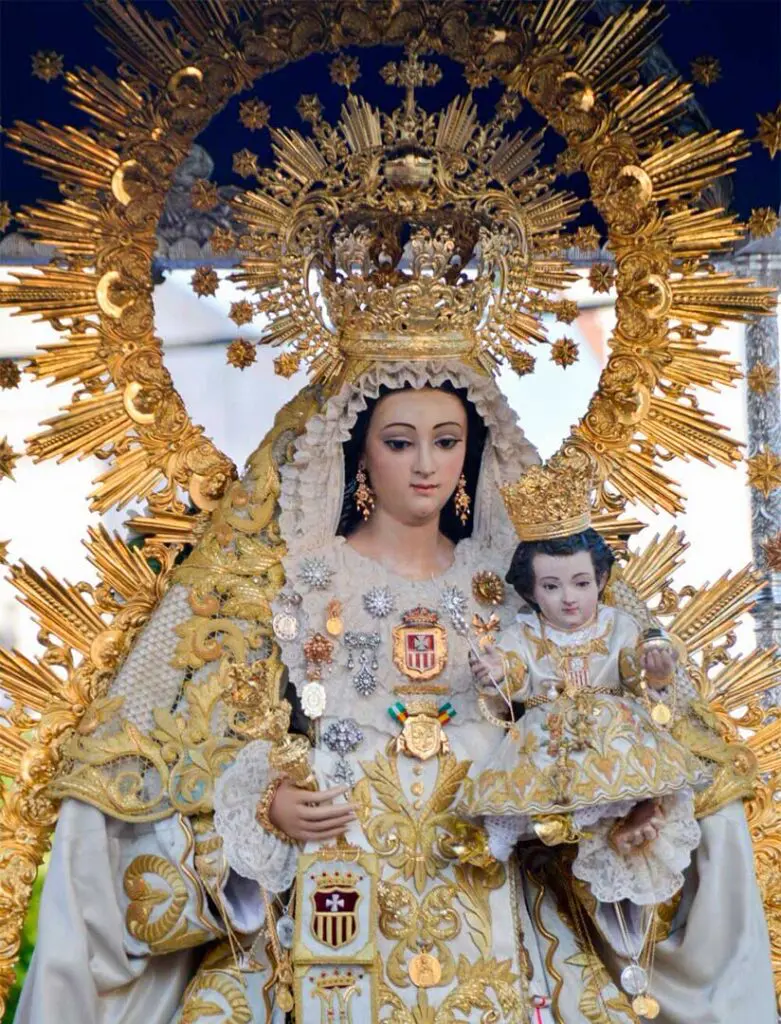
The similarity between Obatalá's mantle and the cape of the Virgin of Las Mercedes symbolizes universal protection. Both cover and protect their worshipers and other deities or saints, offering refuge and security. This parallel extends to their role as protectors of the oppressed and captives, reflecting the mission of the Mercedarian order founded in honor of the Virgin of Mercy.
The Connection between Obatalá and Africans in America
The relationship between Obatalá and the Virgin of Mercedes takes on an additional dimension among the Africans brought to America. The veneration of Obatalá, as a symbol of justice and protection, found a parallel in the devotion to the Virgin of Mercy, seen as a divine ally in times of captivity and suffering. This spiritual connection reinforces syncretism as a bridge between cultures and beliefs, offering comfort and hope to those far from their homeland.
Shared Virtues and Symbolism
Obatalá, revered for his wisdom, purity and justice, shares many virtues with the Virgin Mary, particularly in her dedication as Our Lady of Mercy. Peace, a quality essentially associated with Obbatalá, finds echo in the figure of the Virgin, also called Queen of Peace. Furthermore, elements such as the silver crown and scepter of power underline a symbolism of celestial authority and divine protection shared between these figures.
You Might Also: Elegua the owner of the roads
Reflections and Teachings of Obatalá
Obatalá, as a father figure and spiritual guide in Santería and the Yoruba religion, shares wisdom that illuminates the path of his devotees. His words are beacons of light in the search for truth, honesty and loyalty. Here we present some of his deepest reflections:
The Echo of Prayers
«The ancestors will always listen to your prayers, just as you must always follow the path that marks your destiny.» This phrase highlights the perpetual connection with ancestors and the importance of embracing the destiny that is laid out for us, reminding us that we are never alone on our journey.
Honesty before the Divine
«Whoever hides to shoot an arrow must know that even when no one sees him, his act is openly revealed to the gods. Always be honest. Always be loyal.» Obbatalá reminds us that our actions, whether visible or not to human eyes, are always transparent to the divine. Honesty and loyalty are fundamental pillars in the lives of those who seek harmony and favor of the Orishas.
Embodiment of Divine Goodness
«He (Obatalá) was to act as if he were the embodiment of Olodumare's own desires in terms of goodness, when dealing with men and divinities.» This teaching highlights Obatalá's role as a manifestation of the divine goodness of Olodumare, the supreme creator, emphasizing his responsibility to guide both mortals and deities towards goodness and justice.
Frequent questions:
What is the origin of Obatalá?
Obatalá is the son of Olofi and Olodumare, main deities in the Yoruba religion. He was in charge of the creation of the earth and human beings, although an incident led him to share this task with Odudúwá.
What does Obatalá symbolize?
Obatalá symbolizes purity, clarity, peace and morality. He represents justice and goodness, and is associated with light and all pure and peaceful aspects of existence.
How is Obatalá represented in the Yoruba cult?
Obatalá is often depicted in white, symbolizing his purity. His altars and his followers wear white clothing in honor of him, and his offerings include white items such as husk, cotton, milk and coconut.
What are Obatalá's favorite offerings?
The offerings to Obbatalá include white and pure foods such as yams, milk, rice, and others. You can also offer white candles, white flowers, and fresh or coconut water.
Are there specific taboos or prohibitions in the cult of Obbatalá?
Yes, offerings that are not white, as well as alcohol and blood, should be avoided, since Obatalá is the Orisha of purity. Additionally, certain festivities and practices require abstaining from impure or conflictive behavior.
What day is Obatalá celebrated?
The day dedicated to the veneration of Obatalá is typically September 24, although dates may vary depending on local tradition or specific religious lineage.
How can you start the cult of Obatalá?
The cult of Obatalá, as with other Orishas, begins with respect and observance of his rituals and offerings. It is important to consult a Santeria priest or priestess (Babalawo or Iyalorisha) for proper guidance.
Does Obatalá have a syncretism with Catholic saints?
Yes, Obatalá is syncretized with several Catholic figures, mainly with Our Lady of Mercedes. This reflects the integration of religious beliefs and practices between Yoruba traditions and Catholicism.
What lessons or teachings does Obbatalá offer us?
Obatalá teaches the importance of purity of heart, patience, justice and compassion. He reminds us of the need to maintain peace and clarity in our lives and in our relationships with others.
I pray to Obatala

The practice of praying to Obbatalá is a sacred act in the Yoruba religion, invoking protection, wisdom and prosperity. This traditional Yoruba prayer honors the Orisha of purity and creation.
Obanla o rin n'erù ojikùtù s'èrù. (The king of the white cloth never fears the coming of death).
Oba n'ile Ifón alábalàse oba patapata n'ile ìrànjé. (The Heavenly Father will always be the rule of all generations).
O yo kelekele o ta mi l'ore. Or she gbà á gìrí l'owo osikà. (He gently dissolves the burden of my friends. Give me the power to manifest abundance.)
O fi l'emi asoto l'owo. Oba ìgbò oluwaiye rè é o kéè bi òwu là. (Reveal the mystery of abundance. Father of the sacred grove, the owner of all blessings increases my wisdom.)
O yi 'àála. Osùn l'àála o fi koko àála rumo. Oba ìgbò. Ase. (So that I may become like the white cloth. Protector of the white cloth I salute him. Father of the sacred grove. Asé).
References
- De Sousa Hernandez, Adrian. (2005). The Orishas in Africa. An approach to our identity. Editorial of Social Sciences.
- Dos Santos Juana. (2002). Os Nago ea Morte. Voices Editor.
- Caudillo Diane Elizabeth. (2007). Prayers to the Orishas to look at Santeria.
- Ifa Orilana Aworeni Odumola Sowunmi. (2009). The nature of the Orisas. Rosebud Editions.
- Ócha'ni Lele. (2012). Sacrificial Ceremonies of Santería: A Complete Guide to the Rituals and Practices. Destiny Books Publisher.
- Shango Omo Asa. (2021). Orisha's power. Independent publication.
- Silva, Marie. (2021). Orishas: The Definitive Guide to the African Orisha Deities and Their Presence in Yoruba, Santeria, Voodoo, and Hoodoo, with an Explanation of Dilogun Divination.
More about Obatala:
Do you want to deepen your knowledge about Obatalá and other Yoruba deities? Explore more articles, join our community and participate in discussion forums to share experiences and learnings.
